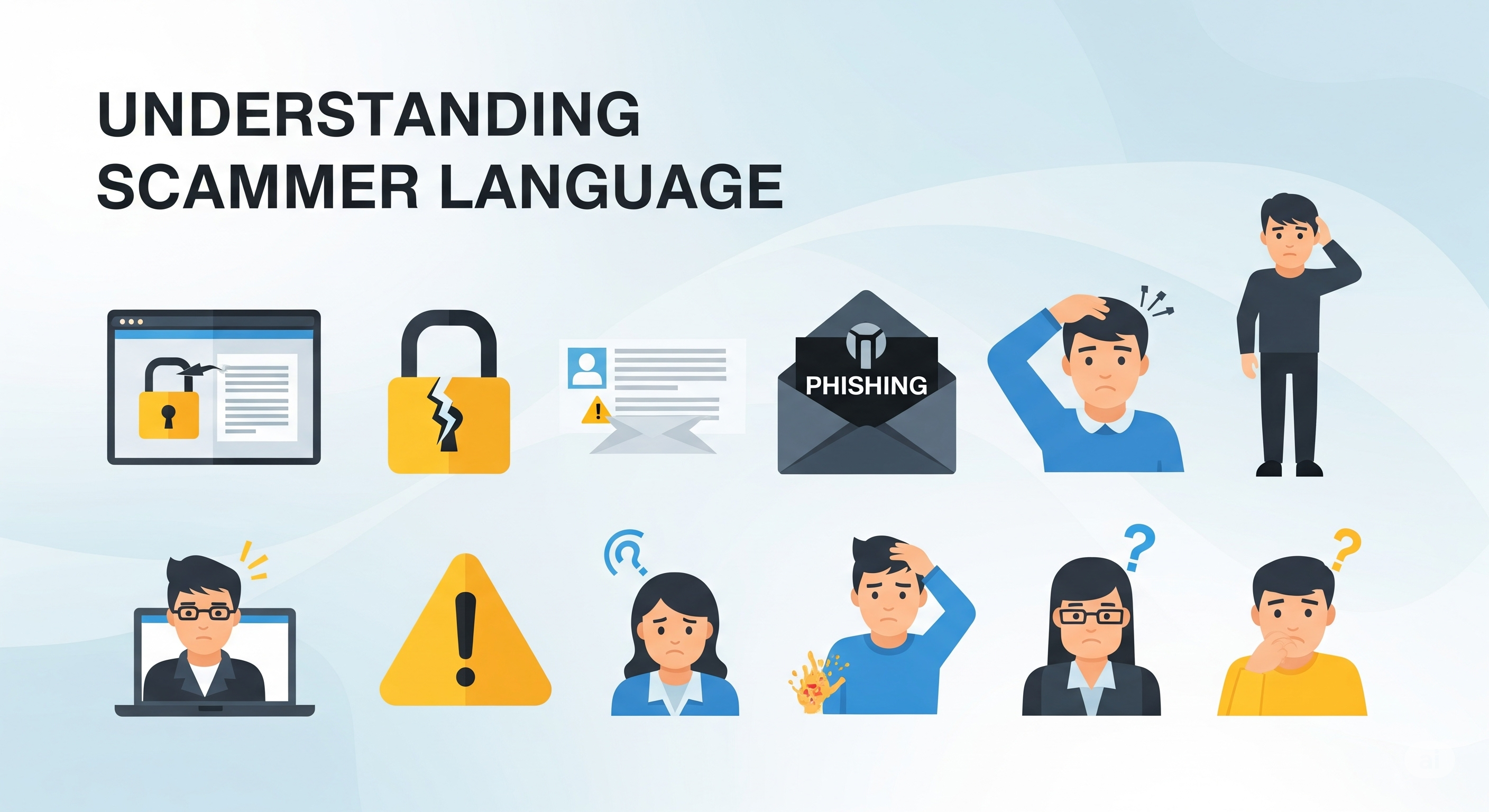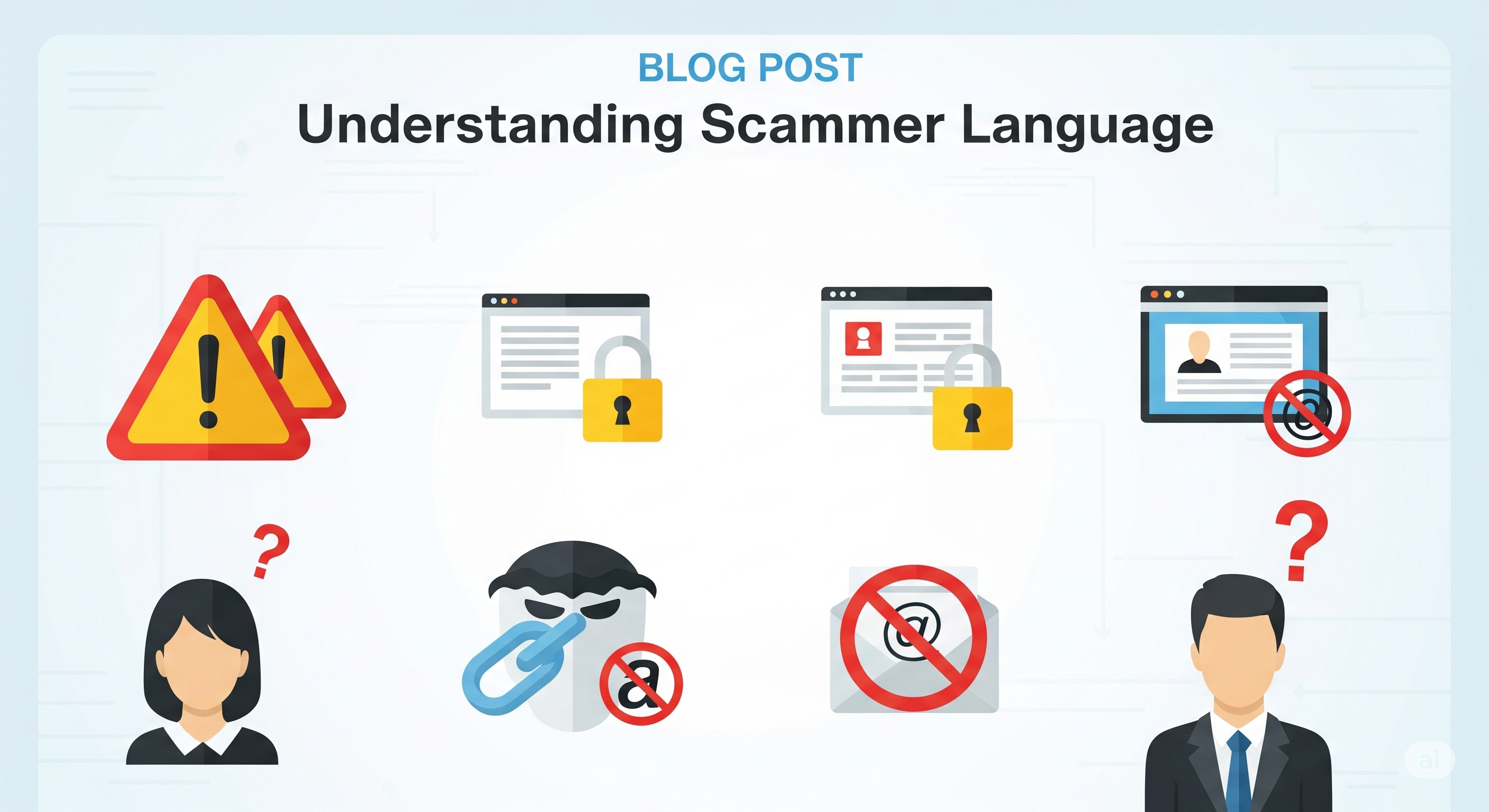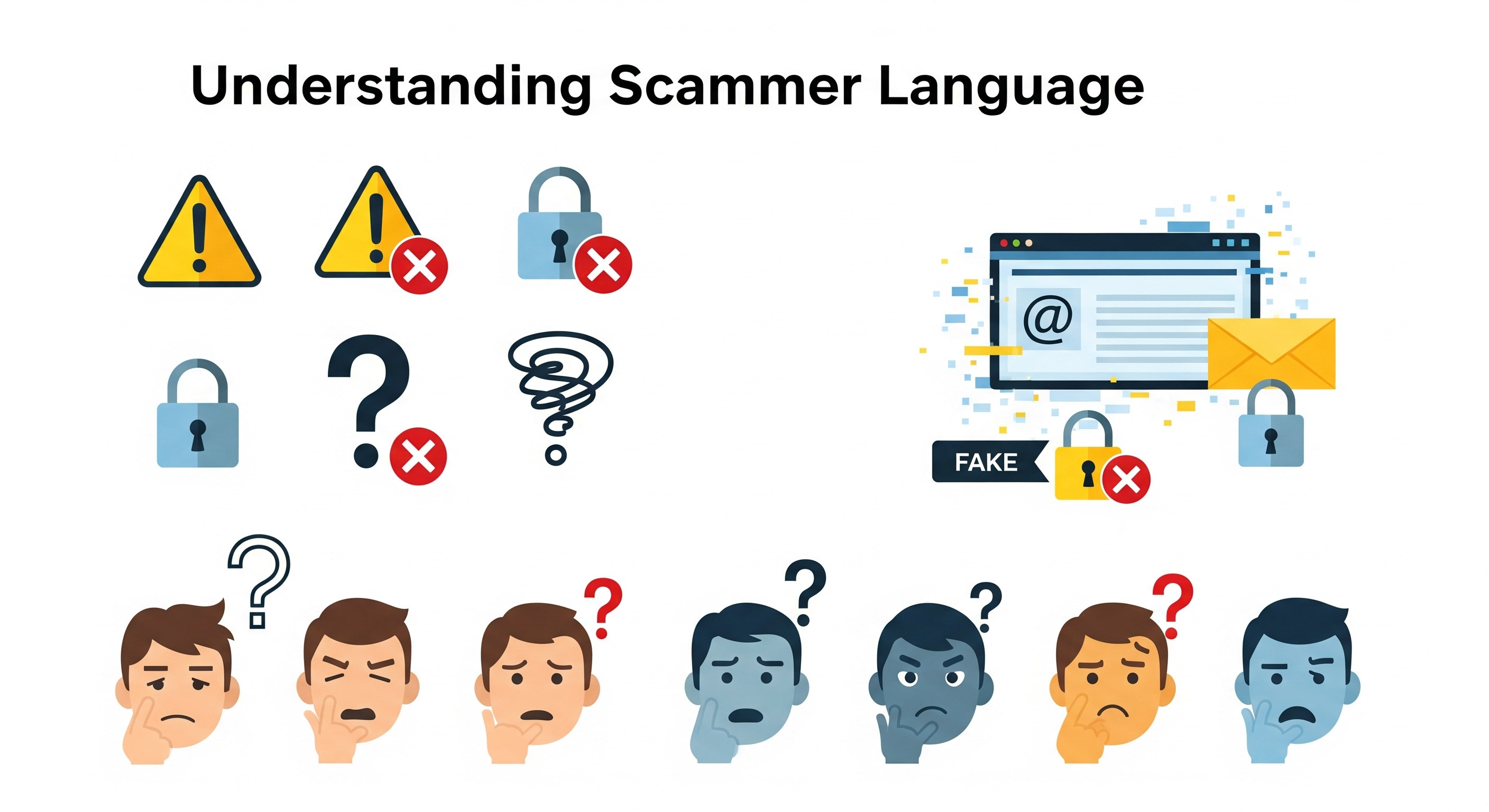Tips & Support
Understanding Scammer Language
Understanding Scammer Language
By Admin
Related Topics

Identify Fake eCommerce
Shopping online is become a normal part of our lives It s quick easy and frequently cheaper than going to......
Read More

Identify Social Media Bots
We use social media for a lot of things every day such reading reviews of products following the news talking......
Read More

Emotional Scam Hooks
In today s fast-paced digital world scams have evolved into highly sophisticated psychological traps and emotional scam hooks are at......
Read More

Scammers Quick Shift to Messaging
Scammers are constantly adapting and the latest trend shows a disturbing shift in how they operate While phishing emails and......
Read More

Identify Fake eCommerce
Shopping online is become a normal part of our lives It s quick easy and frequently cheaper than going to......
Read More
Identify Social Media Bots
We use social media for a lot of things every day such reading reviews of products following the news talking......
Read More
Emotional Scam Hooks
In today s fast-paced digital world scams have evolved into highly sophisticated psychological traps and emotional scam hooks are at......
Read More
Scammers Quick Shift to Messaging
Scammers are constantly adapting and the latest trend shows a disturbing shift in how they operate While phishing emails and......
Read More


